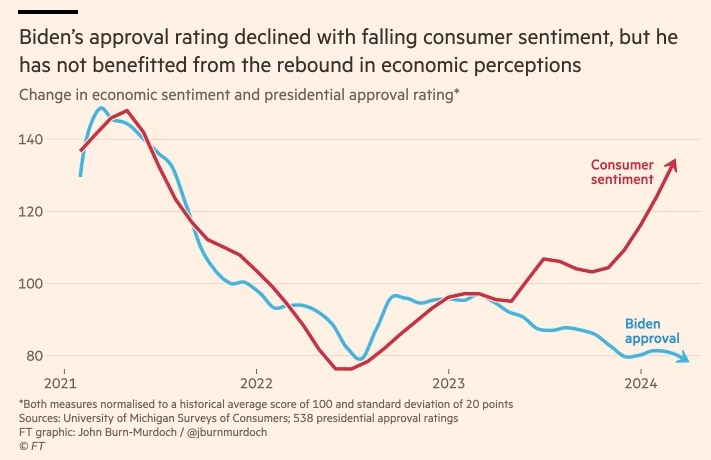International
Cherry-picking the Bible and using verses out of context isn’t a practice confined to those opposed to vaccines – it has been done for centuries
A historian of the Bible in American life explains how Bible verses are being picked out of context to make a case for the anti-vaxxer movement.

A devout evangelical Christian friend of mine recently texted to explain why he was not getting the COVID-19 vaccine. “Jesus went around healing lepers and touched them without fear of getting leprosy,” he said.
This story that St. Luke tells in his gospel (17:11-19) is not the only Bible verse I have seen and heard evangelical Christians use to justify anti-vaccine convictions. Other popular passages include Psalm 30:2: “Lord, I called to you for help, and you healed me.”; 1 Corinthians 6:19: “Do you not know that your bodies are temples of the Holy Spirit?”; and Leviticus 17:11: “For the life of a creature is in the blood.”
All of these verses have been lifted out of context and repurposed to buttress the anti-vaccine movement. As a historian of the Bible in American life, I can attest that such shallow reading in service of political and cultural agendas has long been a fixture of evangelical Christianity.
Bible in the hands of ordinary people
In the 16th century, Martin Luther and other Protestant reformers translated the Bible from an already existing Greek text into the languages of common people. Prior to this, most men and women in Europe were exposed to the Bible through the Vulgate, a Latin version of the Old and New Testaments that only educated men – mostly Catholic priests – could read.

As people read the Bible – many for the first time – they inevitably began to interpret it as well. Protestant denominations formed around such interpretations. By the time Protestants started forming settlements in North America, there were distinctly Anglican, Presbyterian, Anabaptist, Lutheran and Quaker reading of the Bible.
The English Calvinists who settled the Plymouth and Massachusetts Bay built entire colonies around their reading of the Bible, making New England one of the most literate societies in the world. In the 18th century, popular access to the Bible was one way that the British – including the North American colonies – distinguished themselves from Catholic nations that did not provide such access.
American evangelicals
In the early 19th-century United States, biblical interpretation became more free-wheeling and individualistic.
Small differences over how to interpret the Bible often resulted in the creation of new sects such as the Latter Day Saints, the Restorationists (Disciples of Christ and Churches of Christ), Adventists and various evangelical offshoots of more longstanding denominations such as Presbyterians, Baptists, Methodists and Quakers.
During this period, the United States also grew more democratic. What the French traveler and diplomat Alexis de Tocqueville described as “individualism” had a profound influence on biblical interpretation and the way laypeople read the sacred text.
The views of the Bible proclaimed from the pulpits of formally educated clergy in established denominations gave way to a more free-wheeling and populist understanding of the scriptures that was often dissociated from such authoritative communities.
But these evangelicals never developed their approach to understanding the Bible in complete isolation. They often followed the interpretations of charismatic leaders such as Joseph Smith (Latter Day Saints), Barton Stone and Alexander Campbell (Restorationist), William Miller (Adventists) and Lorenzo Dow (Methodists).
These preachers built followers around innovative readings of the Scriptures. Without a church hierarchy to reign them in, these evangelical pied pipers had little accountability.
When large numbers of Irish and German immigrants arrived on American shores in the middle decades of the 19th century, evangelicals drew on longstanding anti-Catholic prejudices. They grew anxious that these Catholic newcomers were a threat to their Protestant nation and often based these fears on perceptions of how Catholic bishops and priests kept the Bible from their parishioners.
While this fear of Catholics was mostly rhetorical in nature, there were a few moments of violence. For example, in 1844, nativist Protestants, responding to rumors that Catholics were trying to remove the Bible from Philadelphia public schools, destroyed two of the city’s Catholic churches before the Pennsylvania militia stopped the violence.
These so-called “Bible riots” revealed the deep tensions between the individualistic and common-sensical approach to biblical interpretation common among Protestants and a Catholic view of reading the Bible that was always filtered through the historic teachings of the Church and its theologians. Protestants believed that the former approach was more compatible with the spirit of American liberty.
Vaccine opposition and the Bible
Today this American approach to reading and the interpreting the Bible is front and center in the arguments made by evangelical Christians seeking religious exemptions to COVID-19 vaccination mandates. When they explain their religious objections to health officials, employers and school administrations, evangelicals select verses, usually out of context, and reference them on exemptions forms.
Like they did in the 19th century, evangelicals who refuse to get vaccinated today tend to follow the spiritual leaders who have built followings by baptizing political or cultural propaganda in a sea of Bible verses.
Megachurch pastors, televangelists, conservative media commentators and social media influencers have far more power over ordinary evangelical Christians than those local pastors who encourage their congregations to consider that God works through science.
When I ask those evangelicals who oppose vaccines how they come to their conclusions, they all seem to cite the same sources: Fox News, or a host of fringe media personalities whom they watch on cable television or Facebook. Some others they cite include Salem Radio host and author Eric Metaxas, the Liberty Counsel and Tennessee megachurch leader Greg Locke, to name a few.
[Over 110,000 readers rely on The Conversation’s newsletter to understand the world. Sign up today.]
Social media allows these evangelical conspiracy theorists to become influential through their anti-vaccine rants.
From my perspective, the response of some evangelicals to the vaccine reveals the dark side of the Protestant Reformation. When the Bible is placed in the hands of the people, void of any kind of authoritative religious community to guide them in their proper understanding of the text, the people can make it say anything they want it to say.
John Fea does not work for, consult, own shares in or receive funding from any company or organization that would benefit from this article, and has disclosed no relevant affiliations beyond their academic appointment.
vaccine covid-19 europeSpread & Containment
Japanese Preprint Calls For mRNA VaccinesTo Be Suspended Over Blood Bank Contamination Concerns
Japanese Preprint Calls For mRNA VaccinesTo Be Suspended Over Blood Bank Contamination Concerns
Authored by Naveen Athrappully via The Epoch…

Authored by Naveen Athrappully via The Epoch Times (emphasis ours),
Receiving blood transfusion from COVID-19-vaccinated individuals could pose a medical risk to unvaccinated recipients since numerous adverse events are being reported among vaccinated people worldwide, according to a recent study from Japan.
The preprint review, published on March 15, examined whether receiving blood from COVID-19-vaccinated individuals is safe or poses a health risk. Many nations have reported that mRNA vaccine usage has resulted in “post-vaccination thrombosis and subsequent cardiovascular damage, as well as a wide variety of diseases involving all organs and systems, including the nervous system,” it said.
Repeated vaccinations can make people more vulnerable to COVID-19, it said. If the blood contains spike proteins, it becomes necessary to remove these proteins prior to administration, and there is no such technology currently available, the authors wrote.
Contrary to earlier expectations, genes and proteins from genetic vaccines have been found to persist in the blood of vaccine recipients for “prolonged periods of time.”
In addition, “a variety of adverse events resulting from genetic vaccines are now being reported worldwide.” This includes a wide range of diseases related to blood and blood vessels.
Some studies have reported that the spike protein in the mRNA vaccines is neurotoxic and capable of crossing the blood-brain barrier, the review stated. “Thus, there is no longer any doubt that the spike protein used as an antigen in genetic vaccines is itself toxic.”
Moreover, people who have taken multiple shots of mRNA vaccines can have several exposures to the same antigen within a small time frame, which may lead to them being “imprinted with a preferential immune response to that antigen.”
This has resulted in COVID-19 vaccine recipients becoming “more susceptible to contracting COVID-19.”
Given such concerns, medical professionals should be aware of the “various risks associated with blood transfusions using blood products derived from people who have suffered from long COVID and from genetic vaccine recipients, including those who have received mRNA vaccines.”
The impact of such genetic vaccines on blood products as well as the actual damage caused by them are currently unknown, the authors wrote.
“In order to avoid these risks and prevent further expansion of blood contamination and complication of the situation, we strongly request that the vaccination campaign using genetic vaccines be suspended and that a harm–benefit assessment be carried out as early as possible.”
Repeated vaccination of genetic vaccines can also end up causing “alterations in immune function” among recipients. This raises the risk of serious illnesses due to opportunistic infections or pathogenic viruses, which would not have been an issue if the immune system were normal, the review said.
“Therefore, from the perspective of traditional containment of infectious diseases, greater caution is required in the collection of blood from genetic vaccine recipients and the subsequent handling of blood products, as well as during solid organ transplantation and even surgical procedures in order to avoid the risk of accidental blood-borne infection,” it stated.
The review was funded by members of the Japanese Society for Vaccine-related Complications and the Volunteer Medical Association. Authors did not declare any conflict of interest.
Dangers With Blood Transfusions
The review pointed out that the genetic vaccination status of blood donors is not collected by organizations even though the use of such blood may pose risks to patients. As such, authors recommended that when blood products are derived from such people, “it is necessary to confirm the presence or absence of spike protein or modified mRNA as in other tests for pathogens.”
“If the blood product is found to contain the spike protein or a modified gene derived from the genetic vaccine, it is essential to remove them,” it stated. “However, there is currently no reliable way to do so.”
Since “there is no way to reliably remove the pathogenic protein or mRNA, we suggest that all such blood products be discarded until a definitive solution is found.”
The authors pointed out that cases of encephalitis among people who received blood from dengue vaccine recipients were reported as recently as last year. This suggests that the present system of tracking and managing blood products “is not adequate.”
Since genetic vaccines were implemented on a global scale for a massive population, “it is expected that the situation will already be complicated” compared to previous drug disasters.
As such, there is an “urgent need” for legislation and international treaties related to the management of blood products, the authors wrote.
The issue of blood transfusion from COVID-19 vaccine recipients has been highly controversial. In 2022, a court in New Zealand ruled against the parents of a sick infant son after they refused blood transfusions from vaccinated people.
The parents had asked the health system to allow blood transfusion from unvaccinated individuals, with donors who were already prepared to contribute. In its ruling, the court stripped the parents of medical custody of their son.
In Canada, doctors have also reported the trend of people’s resistance to vaccinated blood transfusions. Speaking to CBC in 2022, Dr. Dave Sidhu, the southern Alberta medical lead for transfusion and transplant medicine, said that parents of sick children were requesting unvaccinated blood.
“We’re seeing it about once or twice a month, at this stage. And the worry is of course that these requests might increase,” he said at the time.
In Wyoming, Rep. Sarah Penn (R-Wyo.) has sponsored a bill mandating that blood donated by people who have taken COVID-19 shots be labeled. Doing so will allow recipients who do not wish to accept such blood to reject them.
In an interview with Cowboy State Daily, Ms. Penn said, “For various reasons, many people have purposefully strived to keep the mRNA therapies out of their bodies, even to the point that some lost their livelihoods … Their concerns are warranted.”
International
The Realpolitik Grand Divergence
The diverging relationship between economic performance and political success in the U.S. highlights a shift from the past, where a strong economy positively…

The diverging relationship between economic performance and political success in the U.S. highlights a shift from the past, where a strong economy positively impacted incumbent approval ratings. President Biden’s approval ratings remain unaffected despite recent economic improvements, suggesting a decoupling of economic sentiment and political fortunes. This phenomenon, which contrasts with stable economic-political linkages in Europe, is attributed to the U.S.’s heightened partisan divide, where political allegiance increasingly dictates economic perception, challenging the traditional belief that “It’s the economy, stupid” in American politics.
Key Points:
- President Clinton’s political advisor, James Carville, highlighted the economy’s role in political success during 1992 presidential campaign with assertion, “It’s the economy, stupid.”
- Voter sentiment has traditionally linked to economic performance, affecting incumbent party success.
- Recent trends show a disconnect between the U.S. economy’s health and President Biden’s approval ratings.
- The COVID-19 pandemic and inflation crisis may have influenced this anomaly, yet the shift predates these events.
- Research indicates a decoupling of economic sentiment and presidential approval in the U.S. since Obama’s tenure.
- This phenomenon seems unique to the U.S., with European governments’ popularity still tied to economic conditions.
- U.S. political polarization may explain the decoupling, with partisan views influencing economic perceptions.
- Studies suggest that political biases skew individual economic assessments (confirmation bias) impacting presidential approval.
- The current U.S. political climate suggests economic policy impact on electoral decisions is diminishing.
- Contrasts with Europe, where economic sentiment is more uniform across political lines, suggesting a more rational political-economic relationship.
Source: Financial Times
european europe pandemic covid-19International
The Grand Realpolitik Divergence
The diverging relationship between economic performance and political success in the U.S. highlights a shift from the past, where a strong economy positively…

The diverging relationship between economic performance and political success in the U.S. highlights a shift from the past, where a strong economy positively impacted incumbent approval ratings. President Biden’s approval ratings remain unaffected despite recent economic improvements, suggesting a decoupling of economic sentiment and political fortunes. This phenomenon, which contrasts with stable economic-political linkages in Europe, is attributed to the U.S.’s heightened partisan divide, where political allegiance increasingly dictates economic perception, challenging the traditional belief that “it’s the economy, stupid” in American politics.
Key Points:
- President Clinton’s political advisor, James Carville, highlighted the economy’s role in political success during 1992 presidential campaign with assertion, “It’s the economy, stupid.”
- Voter sentiment has traditionally linked to economic performance, affecting incumbent party success.
- Recent trends show a disconnect between the U.S. economy’s health and President Biden’s approval ratings.
- The COVID-19 pandemic and inflation crisis may have influenced this anomaly, yet the shift predates these events.
- Research indicates a decoupling of economic sentiment and presidential approval in the U.S. since Obama’s tenure.
- This phenomenon seems unique to the U.S., with European governments’ popularity still tied to economic conditions.
- S. political polarization may explain the decoupling, with partisan views influencing economic perceptions.
- Studies suggest that political biases skew individual economic assessments, impacting presidential approval.
- The current U.S. political climate suggests economic policy impact on electoral decisions is diminishing.
- Contrasts with Europe, where economic sentiment is more uniform across political lines, suggesting a more rational political-economic relationship.
Source: Financial Times
european europe pandemic covid-19-

 Spread & Containment2 weeks ago
Spread & Containment2 weeks agoIFM’s Hat Trick and Reflections On Option-To-Buy M&A
-

 Uncategorized1 month ago
Uncategorized1 month agoAll Of The Elements Are In Place For An Economic Crisis Of Staggering Proportions
-

 International2 weeks ago
International2 weeks agoEyePoint poaches medical chief from Apellis; Sandoz CFO, longtime BioNTech exec to retire
-

 Uncategorized4 weeks ago
Uncategorized4 weeks agoApparel Retailer Express Moving Toward Bankruptcy
-

 International2 weeks ago
International2 weeks agoWalmart launches clever answer to Target’s new membership program
-

 International2 days ago
International2 days agoParexel CEO to retire; CAR-T maker AffyImmune promotes business leader to chief executive
-

 Uncategorized1 month ago
Uncategorized1 month agoGOP Efforts To Shore Up Election Security In Swing States Face Challenges
-

 Uncategorized4 weeks ago
Uncategorized4 weeks agoKey Events This Week: All Eyes On Core PCE Amid Deluge Of Fed Speakers

















